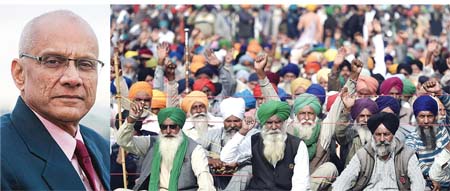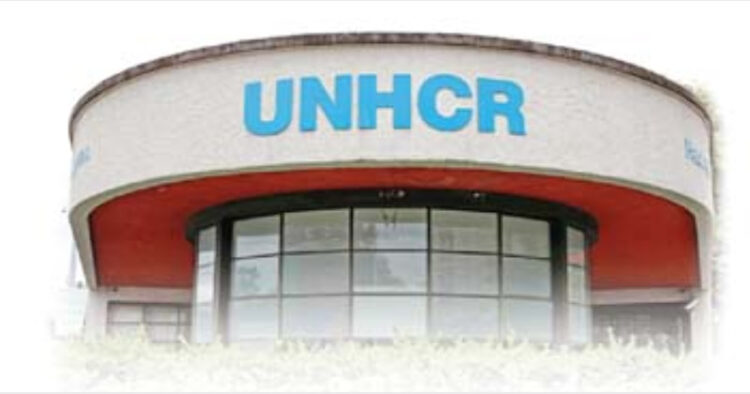There is a list of agencies of the United Nations and other international agencies and organisations notified by the Central Government to be not covered by the definition of “foreign source”, under section 2(1)(j)(ii) of the Foreign Contribution (Regulation) Act, 2010. The list includes United Nations High Commissioner For the Refugees in India. At Present, UNHCR India has Formal partnership agreements with eight national NGOs: Bosco Organisation for Social Concern and Operation (BOSCO), Social Legal Information Centre (SLIC), Bal Raksha Bharat (Save the Children), Fair Trade Forum India (FTF-I), Development and Justice Initiative (DAJI), Gandhi National Memorial Society (GNMS), Action Aid, and Commonwealth Human Rights Initiative (CHRI).
The Guidance Note of UNHCR provides specific provisions and requirements relating to the selection and retention of partners by UNHCR for entering into a Project Partnership Agreement. The objective of UNHCR’s policy on the selection and retention of partners for Project Partnership Agreements is to ensure UNHCR partners with the most suitable organisation in a given operation for the implementation of Projects, in order to provide quality protection and assistance to refugees and other persons of concern. As partners bring distinctive attributes and UNHCR operates in varying and challenging environments, it is necessary to identify the Best-Fit Partner.
This policy applies to all UNHCR Offices undertaking selection/retention of a partner where Project implementation requires entering into a Project Partnership Agreement with a partner that is a non-governmental organisation, Red Cross and Red Crescent Society or other non-profit entities.
It is at the discretion of the UNHCR Office to apply this policy for the selection of partners for Project Partnership Agreements with a budget of less than USD 50,000 (or accumulative budget of less than USD 50,000 within a year in a given country to anyone partner). One such Partner is Human Rights Law Network (HRLN). Human Rights Law Network (HRLN) is a division of the Socio-Legal Information Centre (SLIC). Human Rights Law Network was also one of the Implementing Partner of the UNHCR India till 2020. Colin Gonsalves is the Founder of the Human Rights Law Network (HRLN).

UNHCR India has failed to disclose in their funding update the “Private Chinese Donors” and what comprises “Other Private Donors”. In the Present regime, UNHCR and its operation worldwide, including India, are not bound to disclose the donors to the Government of the Host Country. UNHCR India is also not bound to disclose to the Government of India how these funds are being utilised by these Implementing Partners and Operational Partners NGOs
There are Private donors from China, who are funding UNHCR India, as stated above in the Picture above, titled Funding Update UNHCR, November 2021. There has been a trend of Private donors from China donating to UNHCR India since early 2021. UNHCR India has failed to disclose in their funding update the “Private Chinese Donors” and what comprises “Other Private Donors”. In the Present regime, UNHCR and its operation worldwide, including India, are not bound to disclose the donors to the Government of the Host Country. UNHCR India is also not bound to disclose to the Government of India how these funds are being utilised by these Implementing Partners and Operational Partners NGOs. The UN entities, as discussed above, don’t come under the ambit of the FCRA Amendment and are clearly exempted from the rules of the FCRA Amendment Act. Under this arrangement, UNHCR and Other UN entities may not be required to disclose the donors and funds from “Enemy Countries”, the countries against which India is actively engaged in any armed conflict, both International and non-International in nature.
These funds are disbursed to Implementing and Operational Partners of UNHCR in India. These Implementing and Operational Partners such as HRLN and SLIC does not disclose and, under the present regime, are not bound to disclose the funds received from UNHCR and other UN entities to the Government of India. There is a reasonable likelihood that these funds allocated to the Implementing partners are being utilised for other purposes than the purpose for which it was disbursed, such as halting and impeding the Development Programmes of the Government of India. It is evident that recently a Petition was filed in the Honourable Supreme Court of India by one NGO, Citizens for Green Doon, to oppose the development of the Char-Dham Highway Project on environmental grounds. The lawyer who appeared on behalf of the NGO was Colin Gonsalves. In the view of events, which have taken place in the recent past on the Indo-China border, the infrastructure development on the Char-Dham Highway is strategic in nature to safeguard India’s sovereignty.
In another case, Colin Gonsalves is an active member of Samyukta Kisan Morcha, SKM. The SKM is a national farmer’s collective comprising 40 farmer organisations, 30 farmer unions from Punjab, and 10 other organisations from outside the state. SKM raised collective propaganda against the Farm Law in India. Colin Gonsalves lobbied with International Stakeholders such as the UN against the Farm Law in India. Further, Gonsalves and his NGO, both HRLN & SLIC, also played an active role in the anti-CAA Protest in India. It is to be noted that Spokesperson for the UN High Commissioner for Human Rights, Jeremy Laurence raised concerns about India’s new Citizenship (Amendment) Act 2019 by stating it as discriminatory. The amended legislation seeks to expedite citizenship for religious minorities—naming specifically only Hindus, Sikhs, Buddhists, Jains, Parsis and Christians—fleeing persecution in Afghanistan, Bangladesh and Pakistan, who have been residents before 2014. But it does not extend the same protection to Muslims, including minority sects. The amended law would appear to undermine the commitment to equality before the law enshrined in India’s constitution and India’s obligations under the International Covenant on Civil and Political Rights and the Convention for the Elimination of Racial Discrimination, to which Indian is a State party, which prohibit discrimination based on racial, ethnic or religious grounds. Although India's broader naturalisation laws remain in place, these amendments will have a discriminatory effect on people’s access to nationality. It appears that there is a deep-rooted nexus amongst the UN and its entities on one side, Implementing and operational Partners on the other side. The UN and its implementing partners are directly involved in discrediting the established democracy such as India.

Colin Gonsalves who is an active member of Samyukta Kisan Morcha has raised collective propaganda against the Farm Law in India. Gonsalves lobbied with International Stakeholders such as the UN against the Farm Law in India. Further, he and his NGO, both HRLN & SLIC, has also played an active role in the anti-CAA Protest in India
The United Nations also criticised the FCRA Amendment (2020) Act on the premise that access to resources, including foreign funding, is a fundamental part of the right to freedom of association under international law, standards, and principles, and more particularly part of forming an association. Therefore, any restriction on access to foreign funding must meet the stringent test for allowable restrictions for the right to association developed by the international human rights bodies. Given this narrow test, restricting access to foreign funding for associations based on notions such as “political nature”, “economic interest of the State” or “public interest” violates the right because these terms or definitions are overly broad, do not conform to a prescribed aim, and are not proportionate responses to the purported goal of the restriction. Such stipulations create an unacceptable risk that the law could be used to silence any association involved in advocating political, economic, social, environmental or cultural priorities that differ from those espoused by the government.
In the light of the above, the Ministry of Home Affairs, GOI, must hold UNHCR India accountable for the funds they receive from various donors, including the Private Donors from China, Other Private Donors and their utilisation on the Indian soil. The NGOs acting as implementing partners of the UN and its agencies in India are largely and actively involved in drawing negative campaigns and act as anti-establishment, far away from their actual role in society. It is recommended that the HMO ban such Organisations who receive funds from United Nations and its agencies, funds, bodies etc. and utilise those funds to raise anti-India Propaganda within India and from Outside India.
Finally, it is recommended to the Ministry of Home Affairs to cover the United Nations and other international agencies and organisations within the definition of “foreign source”, under section 2 (1) (j) (ii) of the Foreign Contribution (Regulation) Act, 2010 by making a suitable amendment.














Comments